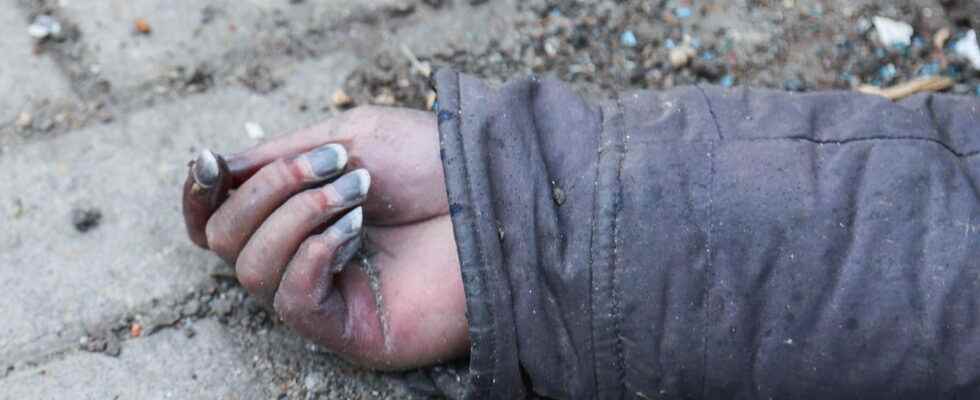UKRAINE. The war in Ukraine is in full swing with the withdrawal of Russian troops from kyiv and several other areas of the country. But their passage gives way to scenes of desolation with, as in Boutcha, “very clear indications of war crimes”.
Volodymyr Zelensky visiting Boutcha
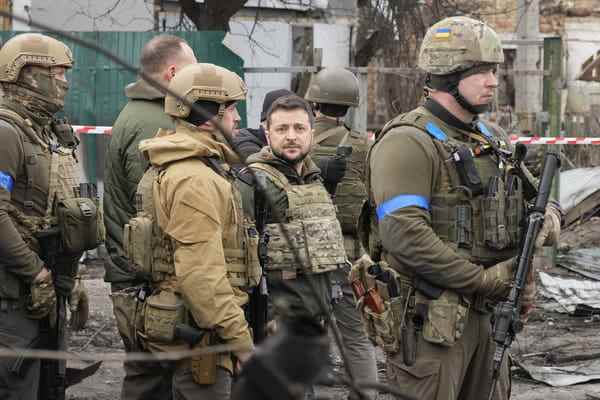
April 4 at 5:08 p.m.. The Ukrainian President, Volodymyr Zelensky, went, in a bulletproof vest and accompanied by Ukrainian soldiers, in a street of Boutcha devastated by the fighting, this Monday, April 4, after the discovery of several hundred bodies of civilians by the Ukrainian troops and the international community, in the kyiv region and in particular in Boutcha, on Sunday. He said: “These are war crimes. And this will be recognized by the world as genocide.” “Every day, when our fighters enter and retake territories, you see what is happening,” he added to the media. Boutcha, 37,000 inhabitants before the war, has been the scene of fighting since the start of the invasion of Ukraine on February 24. The city was occupied by the Russian army from February 27, remaining inaccessible for more than a month. The shelling there ceased on Thursday.
The Ukrainian president spoke with residents and visited the bruised city. Asked about the continuation of peace negotiations with Moscow, he replied that he was continuing his “diplomatic and military” efforts but that it had become more difficult for Ukraine to negotiate with Russia as it became aware of the atrocities committed by Russian forces on its territory. Russia rejects accusations that its military was responsible for the deaths. On Sunday, the Ukrainian president castigated the Russian troops, made up according to him of “murderers, torturers, rapists, looters”, after the massacre of civilians uncovered in Boutcha.
Emmanuel Macron calls for new sanctions and Western countries speak of “genocide” in Boutcha
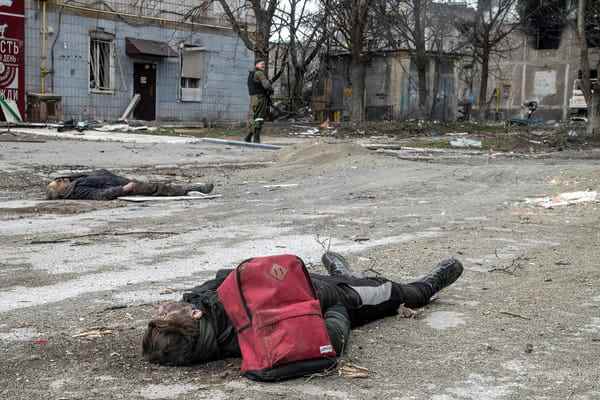
April 4 at 11:25 a.m. On this 40th day of conflict, and after the discovery of several hundred bodies of civilians by Ukrainian troops and the international community, in the kyiv region and in particular in Boutcha, Emmanuel Macron called, this morning, to take new sanctions against Russia, particularly on coal and oil. Moreover, according to European Commissioner Josep Borrell, the European Union is discussing “urgently” new sanctions.
The President of the Republic, Emmanuel Macron, has clearly designated the Russian army as the cause of these deaths and speaks of “very clear indications of war crimes”: “The scenes seen in Boutcha are unbearable. International justice must pass, those who were at the origin of these crimes will have to answer for it (…) It is more or less established that it is the Russian army”. Other European countries speak of “genocide”. Spanish Prime Minister Pedro Sanchez called “that those who perpetrated these war crimes should not go unpunished and be able to appear before the courts, in this specific case before the International Criminal Court, to answer for these alleged cases of crimes against humanity, war crimes and, why not say it also, genocide”. For his part, the Polish Prime Minister, Mateusz Morawiecki, proposed to “set up an international commission to investigate this crime of genocide”. Charges that Russia “categorically” rejects.
Russian troops have withdrawn from the kyiv region, the Ukrainians discover the horrors in Boutcha
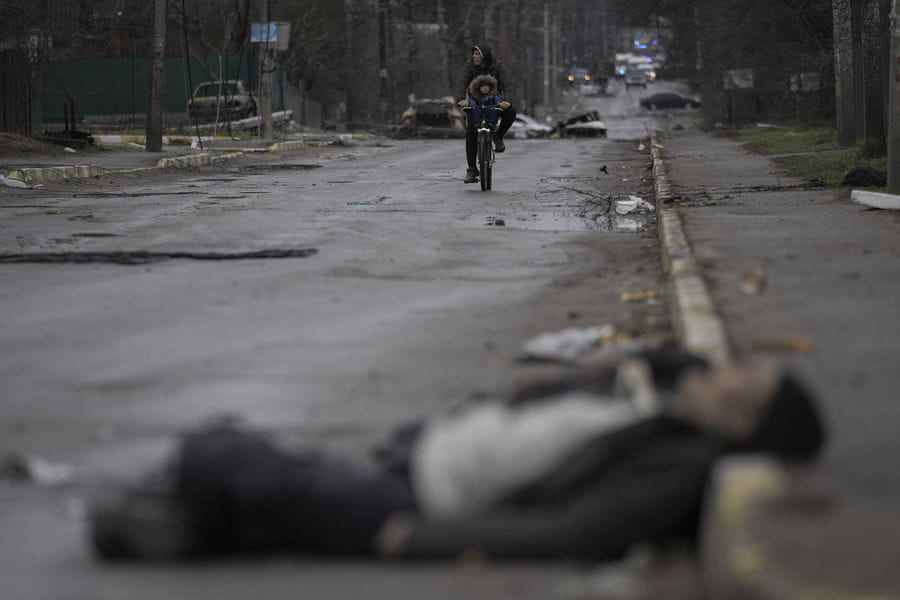
April 3 at 11:30 a.m. On this 39th day of conflict, the Ukrainian authorities have announced that the Russian armed forces have left the kyiv region. All of this territory has been recovered according to them. The Ukrainian Deputy Minister of Defense thus announced that the localities of “Irpin, Boutcha, Gostomel and the entire region of kyiv have been liberated from the invader”. According to her, a “rapid withdrawal” is observed throughout the north of the country in order to redeploy in the south and east of the country.
It is therefore time to take stock of these regions taken over by the Ukrainians. In Boutcha, a town northwest of kyiv, we discover the horror. Nearly 300 people were buried in “mass graves”, Kyiv Mayor Vitali Klitschko told AFP, reports Le Figaro. The first city councilor also told AFP that “in some streets, we see 15 to 20 corpses on the ground”. However, he cannot “say how many there are still in the courtyards, behind the palisades”.
38th day of war: Russian troops leave kyiv and Chernihiv regions
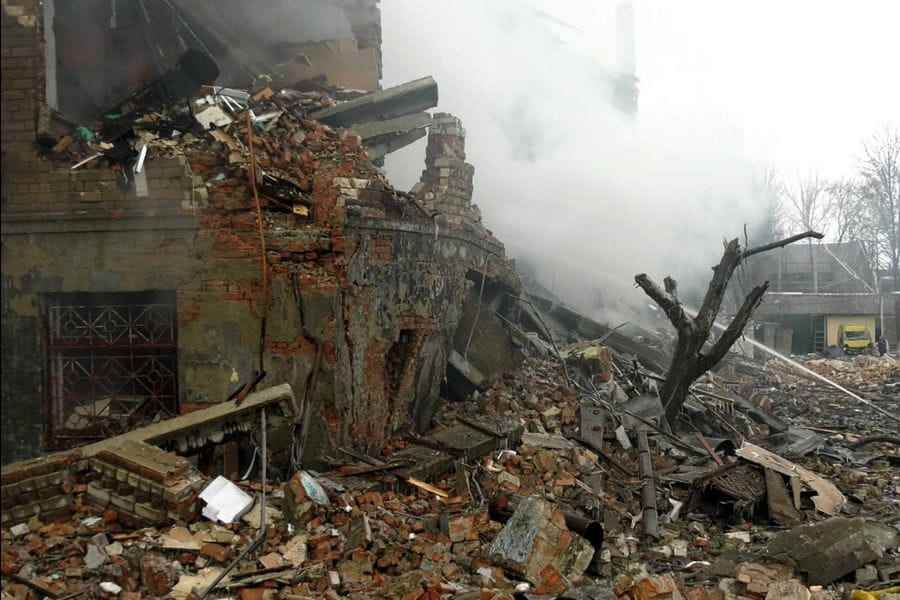
April 2 at 4:49 p.m. As announced a few days ago, Russian troops are gradually leaving the cities of western Ukraine to concentrate on the south and east of the country. This Saturday, April 2, Oleksiy Arestovych, an adviser to the Ukrainian presidency, confirmed it on a television channel: “Let us have no illusions: there are still intense battles for the south, for Mariupol, for eastern Ukraine.” Another adviser also said that the Russians are operating a “rapid withdrawal” of their forces in the kyiv and Chernihiv regions: “Given all the movements and concentrations of occupying troops, it is quite clear that the Russia has chosen another priority tactic.”
The Russian troops are therefore repositioning themselves in the south and east of Ukraine, but not only… Indeed, according to the Ukrainian authorities, Russian soldiers are currently deployed in Transnistria. It is a self-declared independent Moldovan region that lies within missile range of the port city of Odessa.
Russian soldiers allegedly contaminated after digging trenches in Chernobyl
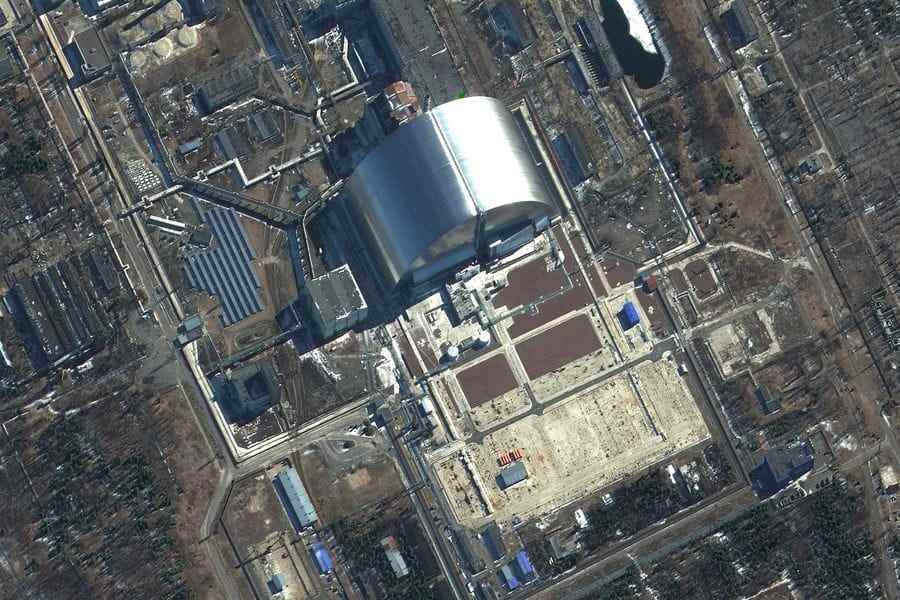
April 1 at 5:02 p.m. Russian soldiers are said to have dug trenches in the Red Forest, around the nuclear site of Chernobyl. Only problem, highly radioactive waste was buried there, 35 years ago after the explosion of the plant. This is how soldiers would have been contaminated after being exposed to radioactive elements for too long. In addition, the movements of the tanks in the dust of the site would have played a role in the contamination of the soldiers, according to The Guardian.
Information confirmed by the journalist of the World, Faustine Vincent: “Seven medical buses carrying Russian soldiers, who had seized the Chernobyl site at the start of the offensive, were today brought to the Radiation Medicine Center in Homel, Belarus, according to Belarusian media independents,” she wrote on Twitter. According to an employee of the Chernobyl plant, young Russian soldiers would never have heard of the disaster that hit the site in 1986.
Petro Kotin, president of Energoatom, indicated at the microphone of BFM-TV, Friday, April 1: “We know that some people have developed radiation-related symptoms, but we cannot confirm this 100%. They were building fortifications in this forest, in places where the radiation levels were very high .” The International Atomic Energy Agency, meanwhile, said it was opening an investigation.
READ MORE
Since the start of the conflict, maps have played a key role in understanding the Russian military operation and in monitoring the situation in Ukraine live. Several press agencies, but also specialized institutes and French, Ukrainian and international media, offer maps and graphics updated daily. Some of these cards offer real-time tracking of the latest events, others focus on the major events of the last 24 hours.
